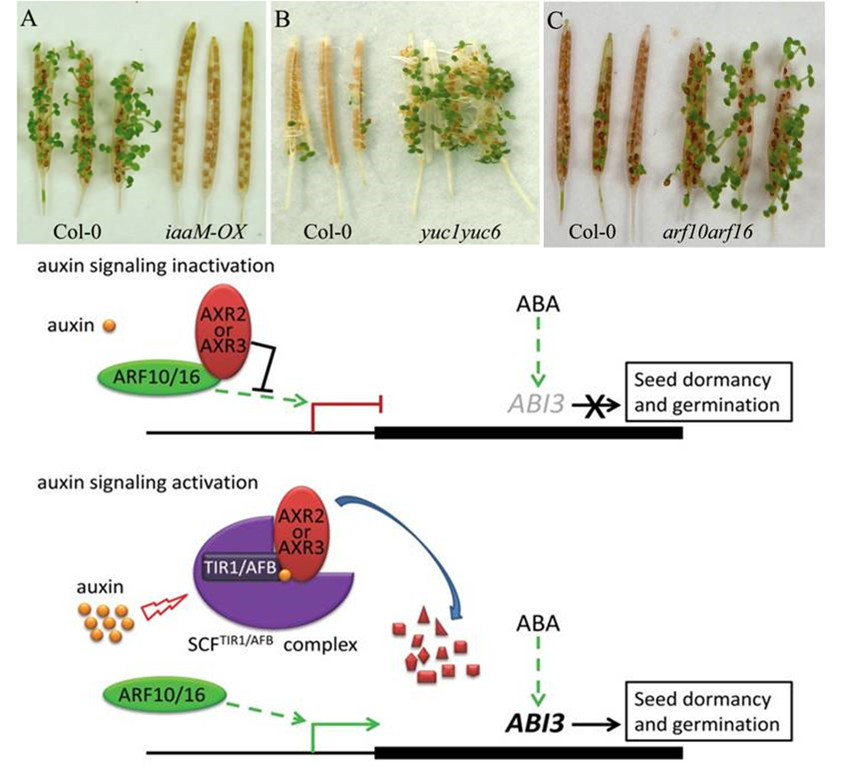Auxin Controls Seed Dormancy through ARF-mediated ABI3 Activation in Arabidopsis
The transition from dormancy to germination in seeds is a key physiological process during the lifecycle of plants. We show that the plant growth hormone auxin control seed dormancy through ARF-ABI3 signaling cascade in Arabidopsis.
Abscisic acid (ABA) is the sole plant hormone known to maintain seed dormancy; it acts through a gene expression network involving the transcription factor ABSCISIC ACID INSENSITIVE 3 (ABI3). However, whether other phytohormone pathways function in the maintenance of seed dormancy in response to environmental and internal signals remains an important question.
Auxin is involved in almost all aspects of plant development as well as responses to a multitude of environmental situations. Researchers led by Dr. HE Zuhua from the Institute of Plant Physiology and Ecology, Shanghai Institutes for Biological Sciences found that Arabidopsis auxin mutants displayed either accelerated or inhibited germination of freshly harvested seeds, suggesting an active role of auxin in seed dormancy. Through extensive analysis of the auxin and ABA pathways and their roles in seed dormancy, they showed that auxin is required for seed dormancy and ABA inhibition of seed germination and elucidated an ARF-ABI3 signaling cascade through which auxin activates ABA signaling to control seed dormancy. Thus they uncover a previously unrecognized regulatory factor of seed dormancy and a coordinating network of auxin and ABA signaling in this important process.
Entitled “Auxin controls seed dormancy through stimulation of abscisic acid signaling by inducing ARF-mediated ABI3 activation in Arabidopsis” this research was published online in the Proceedings of the National Academy of the Sciences of the United States of America on August 28, 2013. This work was supported by Natural Science Foundation of China Grants.
Auxin controls seed dormancy through stimulation of abscisic acid signaling (Image by Dr. HE Zuhua's group)
